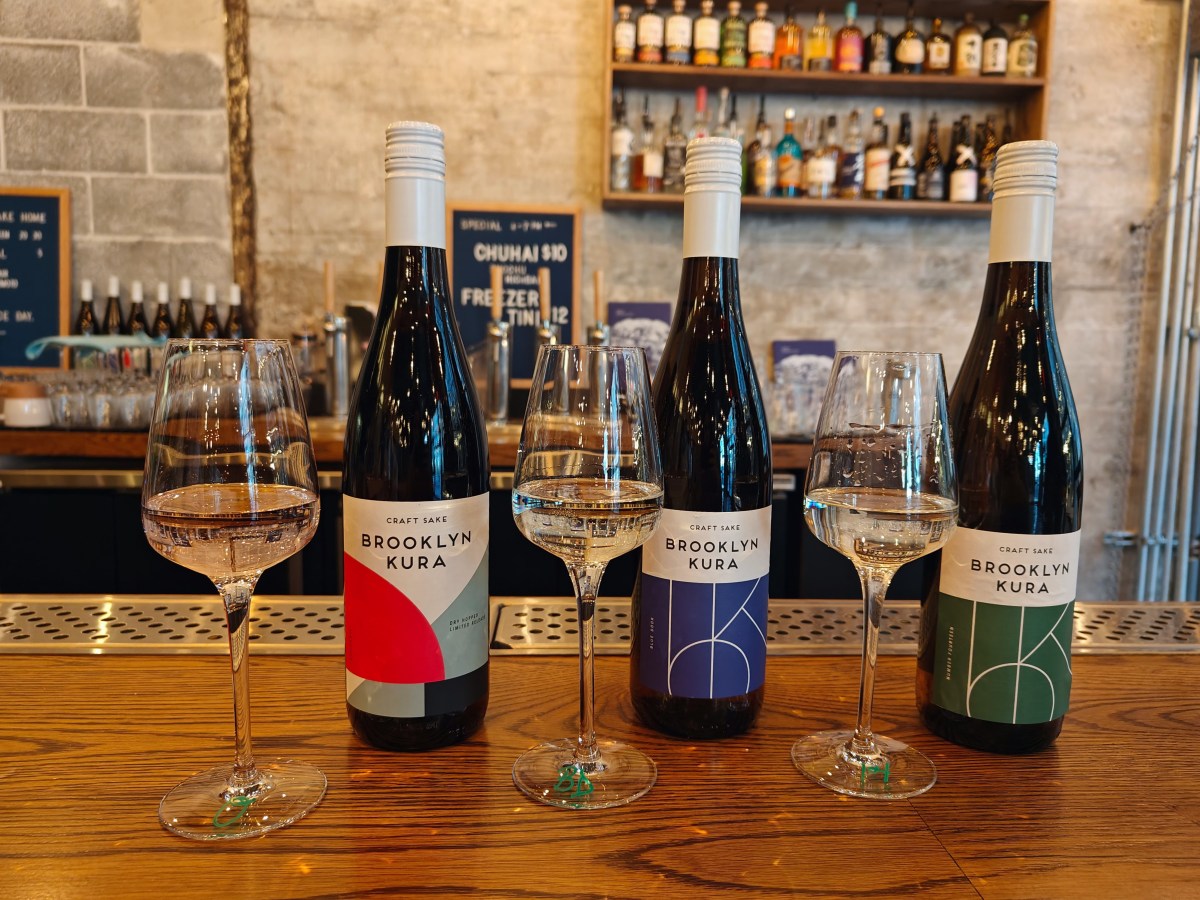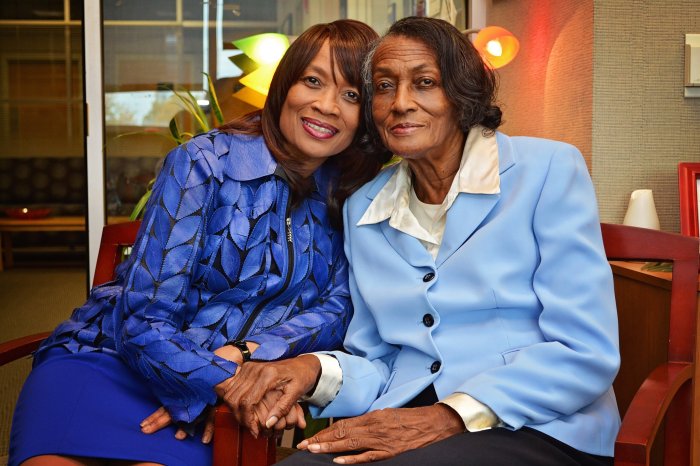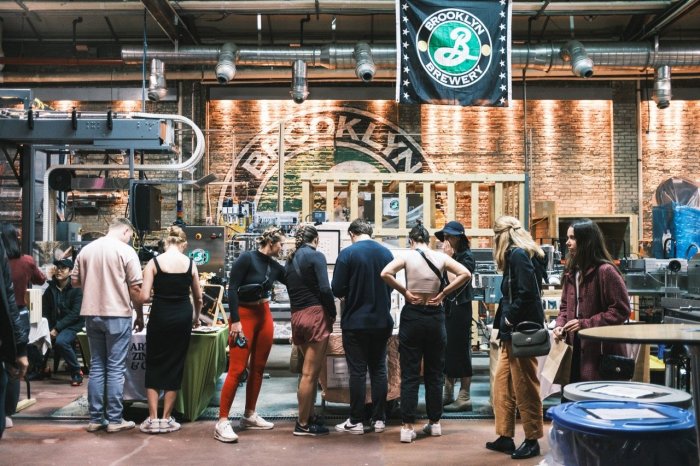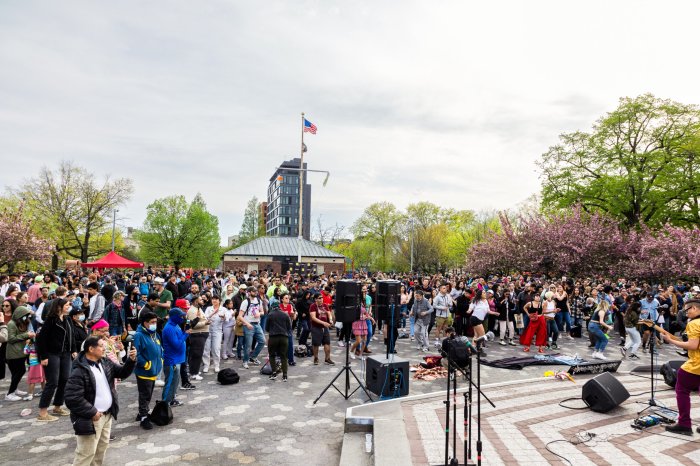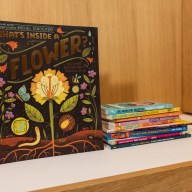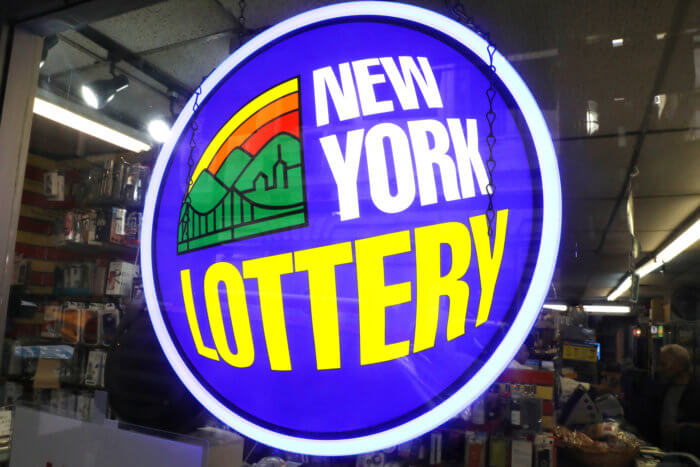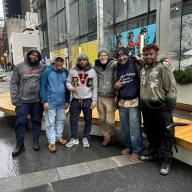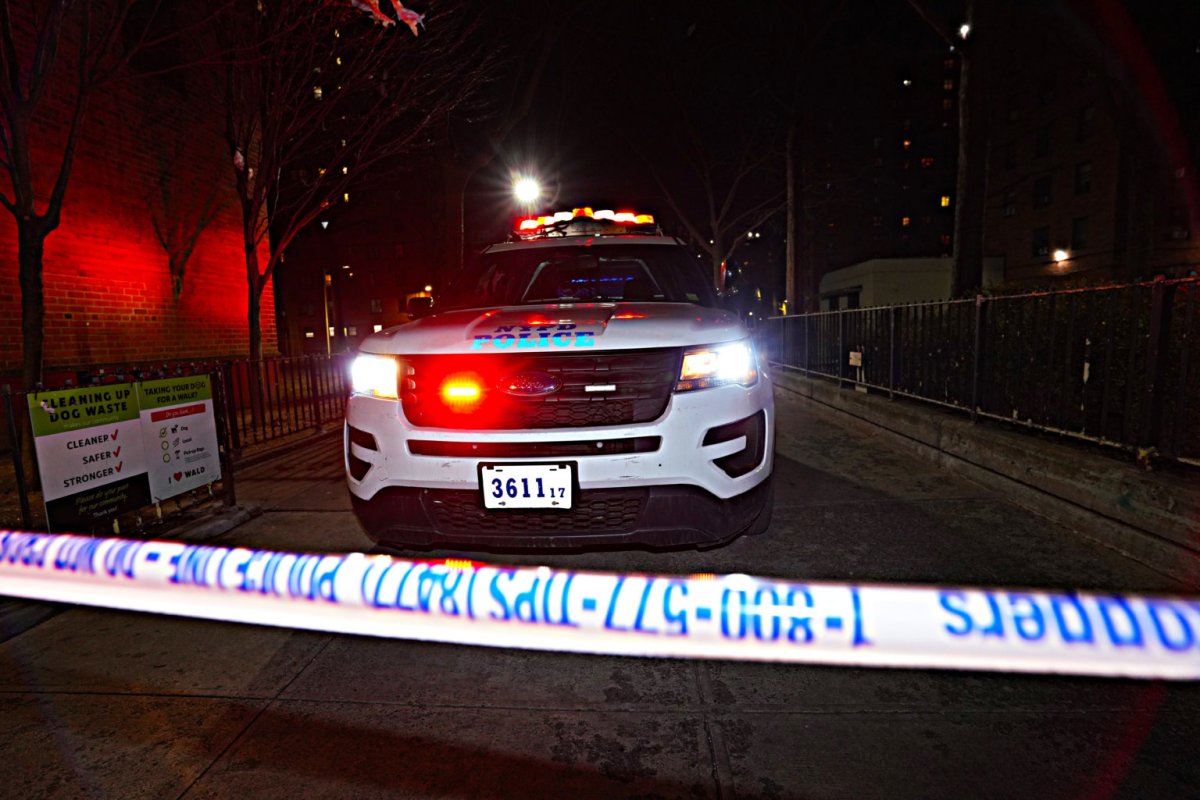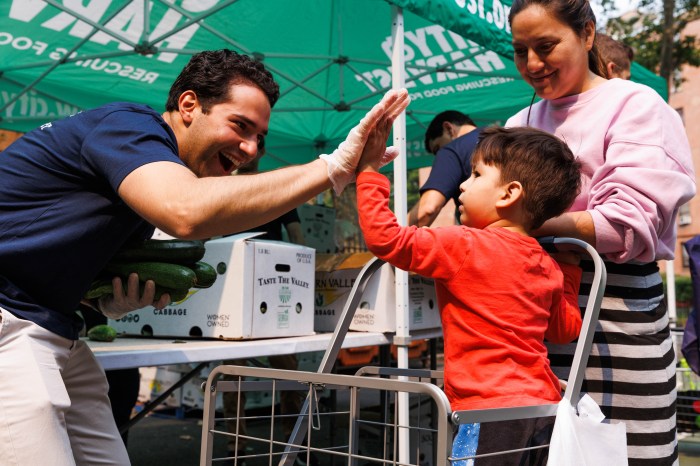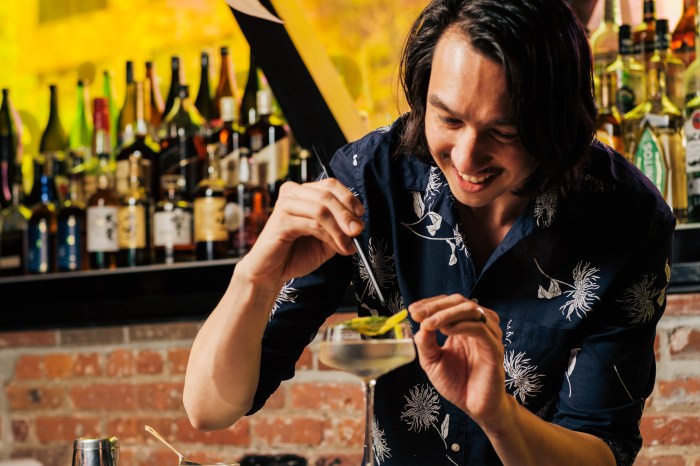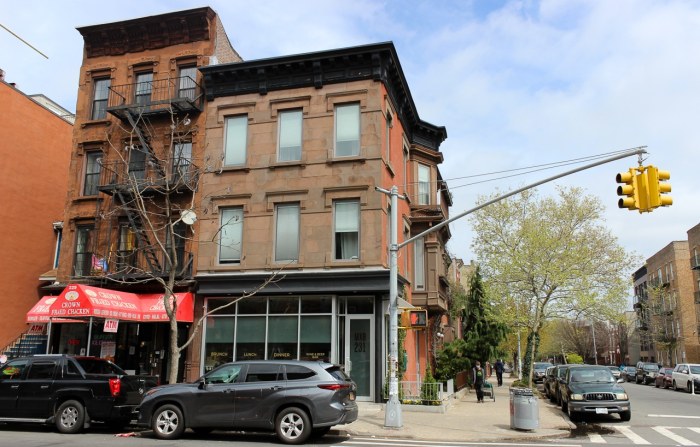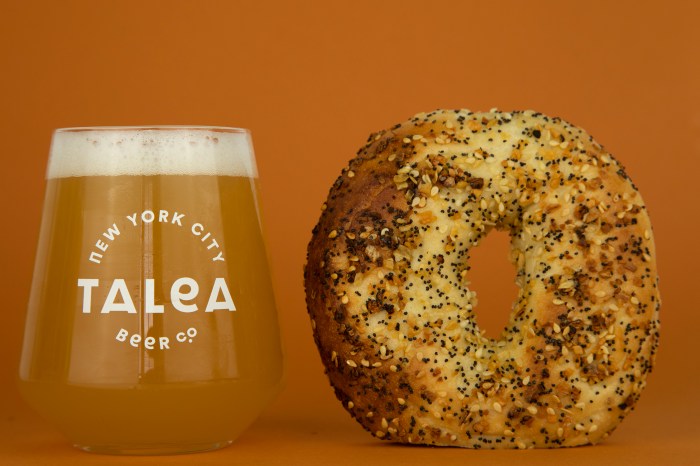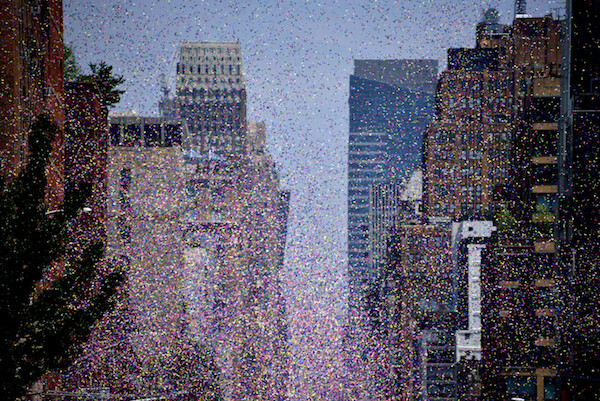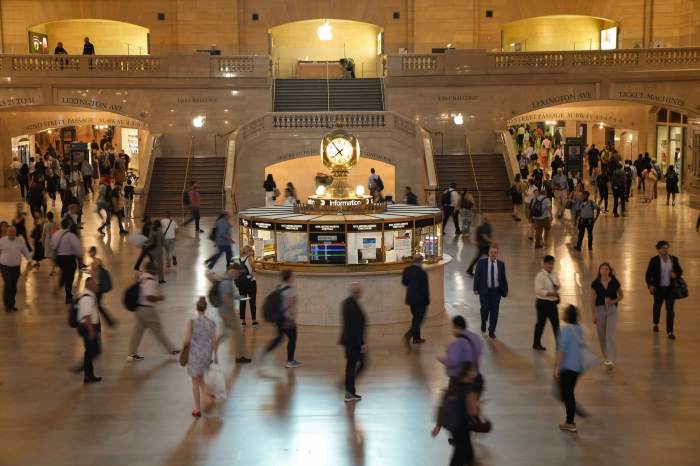Kanpai!
Brooklyn Kura, a sake brewery in Sunset Park, is working to bring together those interested in Japanese rice wine. The team behind Industry City’s sake spot keeps their agenda busy with charity events, classes and unique pop-up cookouts.
Brooklyn Kura is made up of different concepts. It is a factory, a tap room, a restaurant, a center for sake studies and a cultural hub. Renowned Japanese chefs, artists and different organizations have put together experiences that connect people who have a common interest — sake.
“I mean, it’s delicious,” said Kura’s co-founder Brian Polen. “We are not trying to sell something that isn’t wonderful and culturally connected.”
In January, the brewers hosted a fundraiser to aid the victims of Japan’s latest 7.5 magnitude earthquake that left 240 dead. More than 100 people attended.
“That is what the taproom is for, to bring people together,” said Polen.
To celebrate Women’s History Month, Brooklyn Kura teamed up with chefs Maiko Kyogoku and Elena Yamamoto, the female forces behind the critically acclaimed Bessou in Chelsea. They paid homage to Japan’s obanzaiya chefs — those who specialize in traditional Japanese cuisine, native to Kyoto, who are mostly females.
This month, Kura’s Study Center offered an introductory class to sake and a sake and dessert pairing lesson. Later this week, the brewery will host a culturally-connected cocktail pop-up alongside Brooklyn’s Faccia Brutto, a company dedicated to classic Italian spirits.
Brooklyn Kura comes to life
Polen says the journey to Brooklyn Kura began after he met his business partner, biochemist Brandon Arbuer, at a mutual friend’s wedding in Japan.
“I was looking for a hobby,” he said, and Arbuer had brewed sake in his basement in Portland. Polen started making it in his dining room.
“We realized we could make it independent from the culture. Not doing more of it in the U.S. would be a fundamental failure,” he said.
And so, the two started producing at a small scale in a quaint facility in Bushwick, within an old Pfizer building. In 2017, Polen and Arbuer moved to Industry City, having scored an investment from one of Japan’s most respected sake breweries, Hakkaisan. By January 2018, they sold their first bottle.
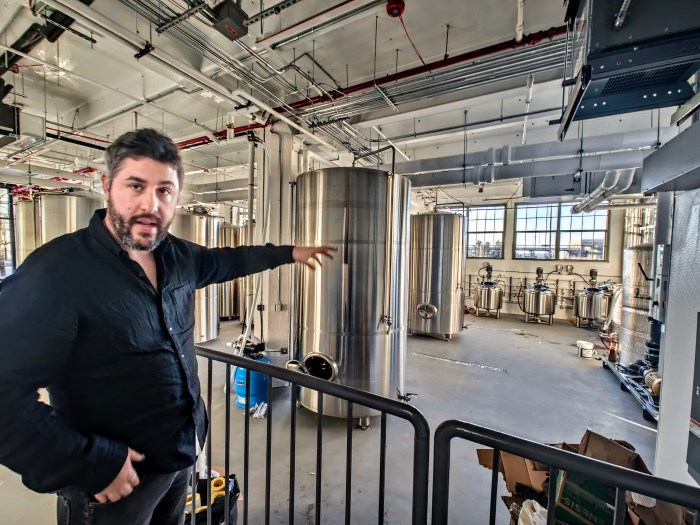
“We won competitions in the blind,” said Polen. “Like California wine transformed the industry, it’s all about the producer. Once people try our sake, they let go of strict perceptions of origin and realize there is a huge range of good sake. There are small local producers, national producers, levels of care and different branches. It doesn’t have to be fancy or esoteric, it can be enjoyable and affordable.”
Kura is the Japanese word for warehouse, a place where valuables are stored, so the brewers thought it aligned with Brooklyn’s industrial identity.
Sake is made through a 45-day process out of four ingredients: water, rice, yeast, and koji. Some of its flavor categories are sweet like caramel or brown sugar, grassy or woody, lacti, light and dry, floral, fruity, such as melon, apple, and pear, savory, earthy and umami.
“Japan’s water is beautiful and relatively soft,” Polen said. “That is arguably the reason behind the quality of their sake. Luckily, NYC, unlike many dense urban American cities, has access to high-quality water. Tap water here is delicious and people attribute the quality of bagels and pizza and ramen to that water. It’s relatively soft in the spectrum of Japanese brewing water and we knew that.”
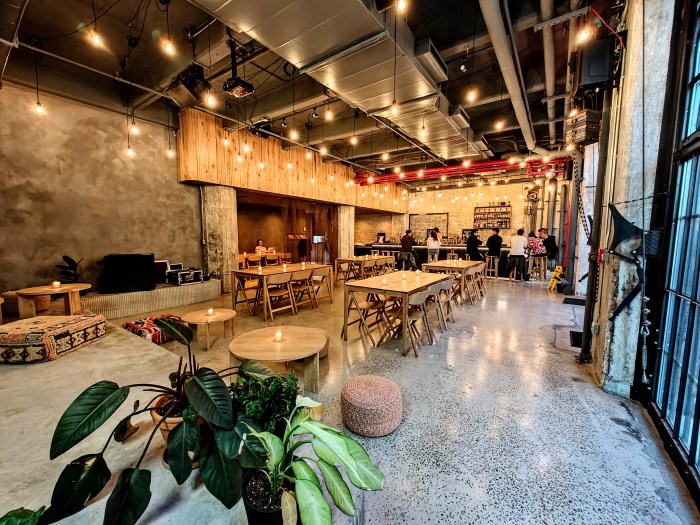
The sake enthusiast started by leaving bottles at bars and restaurants where he knew the principles of Kura would be appreciated, like Blue Hill and Ivan Ramen, which use locally sourced seasonal ingredients and put in a creative twist to their dishes. Now they are looking at making 180,000 litters a year.
Brewers also plan to launch a new Japanese spirit this summer: a shochu, which is traditionally stronger than sake, but softer than vodka, made out of their sake’s byproduct.
A step beyond sake
Other byproducts from the brewery end up in the restaurant’s kitchen. The rice’s kasu, the solid part left behind in the sake process, is used for Kura’s freshly baked two-tone focaccia with furikake and garlic butter and for their ginger and vanilla doughnut holes.
Kasu is also used in their cocktails and for pickling their unusual veg and fruit selection including tart and sweet strawberries, blackberries, cauliflower and peaches.
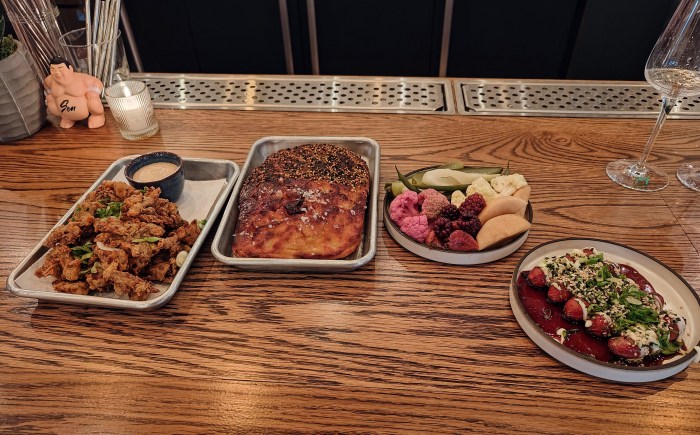
In the same flavor pallet, mixing sweet and savory tones, the smoked and caramelized cocktail Berkshire sausages are one of Kura’s staff most recommended dishes. For vegetarians, the chicken fried oyster mushroom brings a satisfactory crips.
For sake-curious visitors, the food can be paired with a flight of three different kinds.
The taproom and restaurant share a calming, minimalistic space, which contrasts with the brewery’s industrial guts that can be seen from Industry City’s patio. Brooklyn Kura also offers tours of the factory.
“People like to see where things are made, and we like to see people show interest in what we do,” Polen said.


